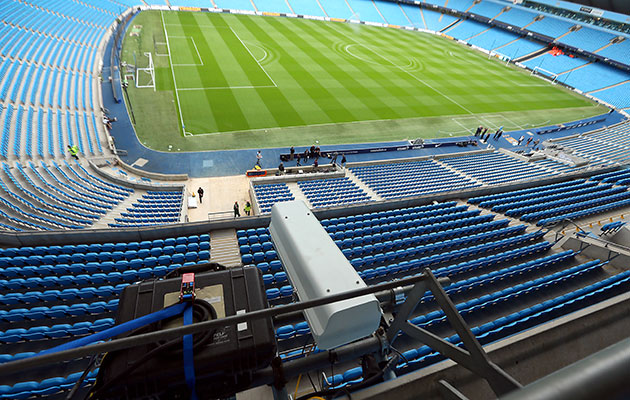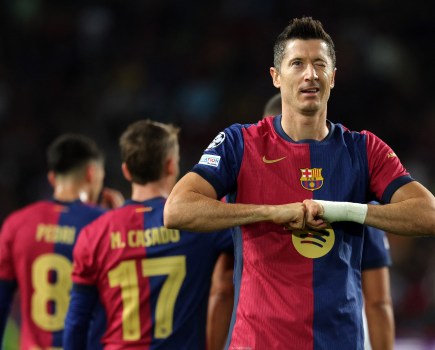With technophobe Michel Platini safely out of the way, UEFA is expected later this week to introduce goal-line technology (GLT) at the Euro 2016 finals in addition to the five-referee system.
The European federation’s president, now appealing against an eight-year ban from football by the FIFA ethics committee, was an implacable opponent of the endorsement of GLT by the law-making International Board three years ago.
Frenchman Platini warned that his opposition was not only to GLT but to technology in general; his concern about a ‘slippery slope’ is being vindicated with next year’s expected launch of video assistance for referees.
Before Platini’s eviction from the game he had reluctantly conceded that the successful use of GLT in England and Italy as well as at the 2014 World Cup had forced its consideration for Euro 2016.
Indeed, a discussion paper issued by UEFA’s chief refereeing officer Pierluigi Collina ignores Platini’s anti-technology stance and credits him, at the least, with an open mind on the issue.
Collina, Italy’s former World Cup Final referee, said that UEFA had undertaken a “long internal consultation process,” analysing hundreds of matches and possible officiating improvements.
Those would almost certainly have included an incident at the Euro 2012 finals in Ukraine when the hosts appeared to be denied a goal in a crucial last group match against England.
Overall, said, Collina, the introduction that year of additional assistant referees had “worked very well and provided clear benefits” while it had been noted that Italy had achIeved “perfect harmony” in applying both GLT and the AARs in Serie A.
Collina, without a hint of irony, added: “It was well over a year ago that UEFA president Michel Platini proposed that we investigate the possibility of having goal-line technology working side-by-side with additional assistant referees to further improve results on the field.
“Mr Platini told us at the time that the opinion of the referees committee would be decisive for the introduction of GLT at UEFA competitions, and he is on the record saying he was always open to the idea of GLT if the referees felt it was a good solution.”
With a review of systems completed, said Collina “we are comfortable for the executive committee to make the decision now.” Even more significantly he added: “We also feel that with UEFA EURO 2016 around the corner, it is a good opportunity for UEFA to introduce GLT at a big tournament.”
Complex challenge
A more complex challenge for UEFA will be whether GLT should have a role to play in the European club competitions.
General secretary Gianni Infantino had suggested last December, on the eve of the Euro 2016 draw, that a “positive feeling” in the exco would mean an all-round introduction was on the way.
However the devil is in the practical detail as far as the club competitions is concerned.
The exco may decide on a priority start with Euro 2016 while undertaking a further review of how and at what stage GLT can be made to work effectively and fairly across the board in the Champions League and Europa League.
One of the complications is commercial. The handful of countries whose leagues can afford GLT use different systems while UEFA, presumably, would want a single solution of its own.
As Infantino said last month: “Everything has to be analysed. For example, one [company] is used in France, a different one in England and so on . . . so this entails a whole series of logistical challenges which we have to analyse.”
On one point UEFA is certain, it will not be dropping the five-referee system. Indeed, Collina suggested its effectiveness would only be enhanced by the addition of GLT.
He said: “The AARs are responsible for monitoring everything that is happening in the penalty area overall. Of course [they] do their best relating to goal-line decisions as well, and what we have noticed is that in order to be prepared to judge goal-line incidents, they need to focus on the goal line before the ball arrives . . . they can miss something occurring at the same time in another place in the area.
“This may reduce the effectiveness of the assistance they are expected to offer the referee.
“With goal-line technology, the additional assistants are released from this demanding task, and can focus exclusively on the control of other incidents on the field.”









